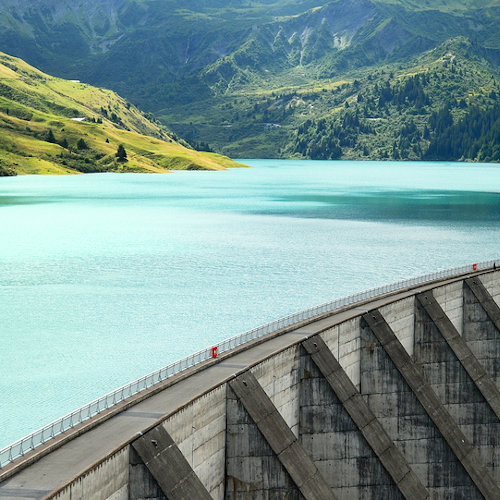
On March 22, World Water Day was celebrated, a date created by the United Nations (UN) in 1992, which has chosen a related theme every year since then to serve as a reflection for the populations of the world and promote debates. This year’s was “nature and climate change”. Undoubtedly an important issue, but specifically in Brazil we should be much more concerned with water losses, not least because they could be avoided, or drastically reduced, if public and private basic sanitation companies adopted existing and available technologies to improve the monitoring and management of these losses and, with that, take effective actions to reduce them substantially.
It is important for the population to know that in Brazil more than 16 billion m³ of water are extracted per year from water sources (according to data from SNIS 2018) that are transformed into drinking water, but only half of this total is well used. The other half, called “water losses”, represents a huge waste, the harmful consequences of which are felt by the whole society, in addition to the damage caused to the environment. We cannot remain indifferent in the face of this situation and only realize it when it is missing As citizens, we are guided to do the minimum to preserve water with messages such as: “close the tap to brush your teeth”, with the remaining 99% of corrective actions being the responsibility of the sanitation companies which for one reason or another continue to waste 50% of processed drinking water. It is not with isolated and minimal actions that we will preserve water for our survival and that of future generations.
The population’s awareness of this issue is fundamental because with greater knowledge about what is happening in their city, citizens will have strong arguments to demand from public and private managers effective actions to combat the misuse of water. The good news is that there is already a free application for Android and iOS systems (the SmartAcqua App) that allows anyone from any location in Brazil to check how much water is taken from their city’s water sources, how much of that total is actually well used, how much is lost and what benefits could be achieved if corrective actions were taken by public and private sanitation managers.
It is worth mentioning that if only the water lost through leaks were recovered, there would be enough to supply 37.5 million Brazilians consuming 150 liters of water per day. And concomitantly, if the water that consumers use were correctly measured and billed, in terms of values, R $ 12 billion per year would be added to revenue for basic sanitation companies, which could be invested in the quality and universalization of water and sewage services.
There would be other recurring gains, such as public health, with the reduction of diseases related to water and sewage; economic balance of basic sanitation companies; recovery of revenue on water consumed; optimization of investments in water production and sewage treatment; potentialization of basic sanitation companies to invest in the universalization of water and sewage services, which would result in an improvement in the quality of services provided, in the fair collection of water consumed and in the practice of adequate tariffs.
The modernization of water distribution management, with the adoption of an effective, systematic and definitive solution also makes it possible to improve environmental management with regard to the preservation of water sources and the environment. But the population must also do its part by means of routine and preventive actions such as: not occupying areas of environmental preservation and springs, not polluting streams and rivers, disposing of garbage correctly, and even more information about the production and distribution of drinking water so as to have an active voice and demand effective actions from managers to combat losses and waste of this asset so essential for life.
* Enéas Ripoli has a degree in Business Administration from the Pontifical Catholic University (PUC-SP), in Systems Engineering from the Armando Álvares Penteado Foundation and in Electromechanical Technology from CTIEO. He is currently CEO of GestÁgua Consultoria e Serviços, specialized in combating and managing water losses, and CTO at SmartAcqua Solutions.
* Hélio Samora has a degree in Mechanical Engineering (Mackenzie), with a postgraduate degree in Industrial Marketing (ESPM). He is currently founding partner and CEO of SmartAcqua Solutions and CEO of i-IoT Solutions.
Be part of the change. Work towards an efficient future, saving precious water, and driving your operational cost-cutting.
Get Started